On the racetrack, everyone knows that
only the first place finisher wins the golden purse.
The story isn't nearly over yet.
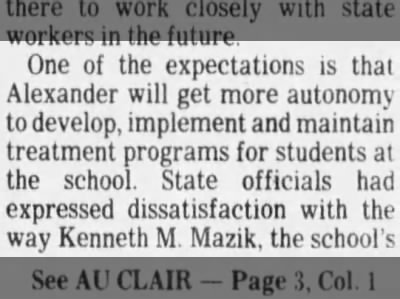 The Dodgers may have ripped the Phillies and Carter may have promising a new tax package, Delaware's big headline on August 27, 1980 was Au Clair's License Restored on Trial Basis by Charles S. Farrell.
The Dodgers may have ripped the Phillies and Carter may have promising a new tax package, Delaware's big headline on August 27, 1980 was Au Clair's License Restored on Trial Basis by Charles S. Farrell.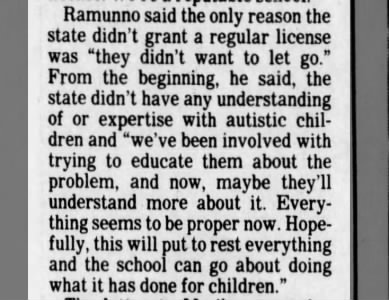 Yet, Mazik still wasn't satisfied. Though he spoke only through his attorney and the parents of his students, his displeasure was evident. It was a demeanor both staff and state department members knew too well.
Yet, Mazik still wasn't satisfied. Though he spoke only through his attorney and the parents of his students, his displeasure was evident. It was a demeanor both staff and state department members knew too well. 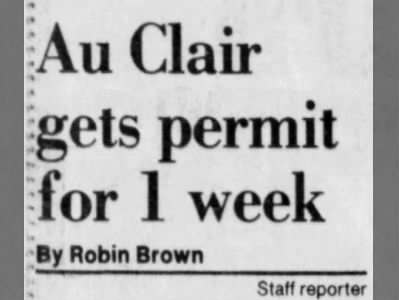
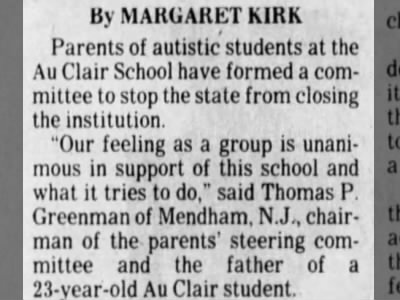 10/18/1979 NJ - The State's decision to deny Au Clair a license for the second time did nothing to end the controversy or close the school. Several parents began exploring legal action against the state for "unnecessary interference in their children's welfare." While sifting through future articles never produced any evidence that such a suit was filed, it did reveal Au Clair had a long, quiet road yet to travel with several states deeply vested in the outcome.
10/18/1979 NJ - The State's decision to deny Au Clair a license for the second time did nothing to end the controversy or close the school. Several parents began exploring legal action against the state for "unnecessary interference in their children's welfare." While sifting through future articles never produced any evidence that such a suit was filed, it did reveal Au Clair had a long, quiet road yet to travel with several states deeply vested in the outcome.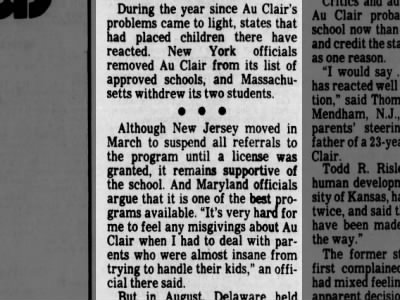 While Rammano insisted that Ken Mazik would come out fighting, Mazik never made a spoke publicly. He existed quietly in the shadows and let his attorney, his Au Clair parents, his sending states be the official voice of the battle for Au Clair.
While Rammano insisted that Ken Mazik would come out fighting, Mazik never made a spoke publicly. He existed quietly in the shadows and let his attorney, his Au Clair parents, his sending states be the official voice of the battle for Au Clair. 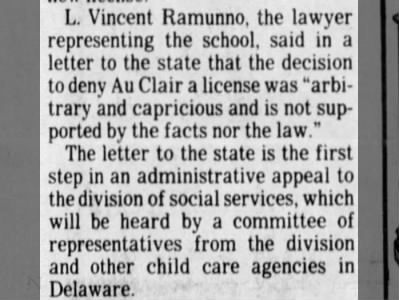 On October 30, 1979, Rammuno filed the first step to an administrative appeal: The Arbitrary and Capricious Clause, defined by Wikipedia as "doing something according to one’s will or caprice and therefore conveying a notion of a tendency to abuse the possession of power." This clause is a legal lynchpin. I knew that before I devolved to Wikipedia as a legitimate source. In most legal administrative procedures appeals can only be filed under these three little words and the filing party is tasked with proving that an action by a public body was "arbitrary and capricious" in order for their appeal to move forward. "Arbitrary and Capricious" is so important to our legal system that it made its way into Title 14, Chapter 1 of the education code that governs our state.
On October 30, 1979, Rammuno filed the first step to an administrative appeal: The Arbitrary and Capricious Clause, defined by Wikipedia as "doing something according to one’s will or caprice and therefore conveying a notion of a tendency to abuse the possession of power." This clause is a legal lynchpin. I knew that before I devolved to Wikipedia as a legitimate source. In most legal administrative procedures appeals can only be filed under these three little words and the filing party is tasked with proving that an action by a public body was "arbitrary and capricious" in order for their appeal to move forward. "Arbitrary and Capricious" is so important to our legal system that it made its way into Title 14, Chapter 1 of the education code that governs our state.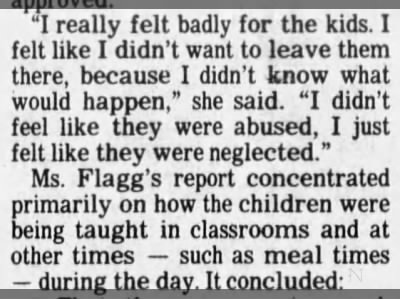
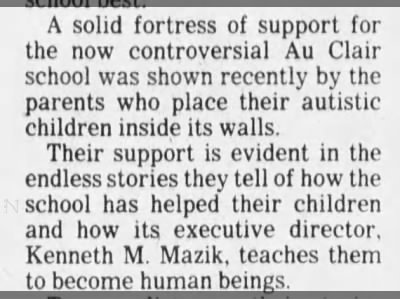 When Claire and Ken opened Au Clair they chose one particular population with which to work - those diagnosed with Kanner's Syndrome - which the Mazik described as the most severe form of autism, the children no other facility wanted. These children were his niche. And for his families, he was their savior.
When Claire and Ken opened Au Clair they chose one particular population with which to work - those diagnosed with Kanner's Syndrome - which the Mazik described as the most severe form of autism, the children no other facility wanted. These children were his niche. And for his families, he was their savior. 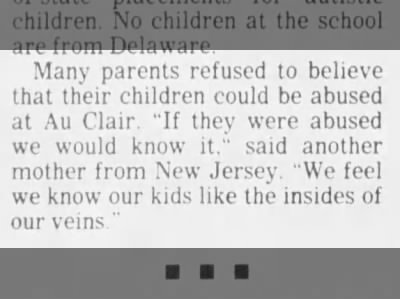 Other stories were more complicated, but gained the same support for Mazik and Au Clair. And each worried about how Delaware's report would affect their own state's view of Au Clair. Would the subsidies stop coming as had happened in New York 1978?
Other stories were more complicated, but gained the same support for Mazik and Au Clair. And each worried about how Delaware's report would affect their own state's view of Au Clair. Would the subsidies stop coming as had happened in New York 1978? 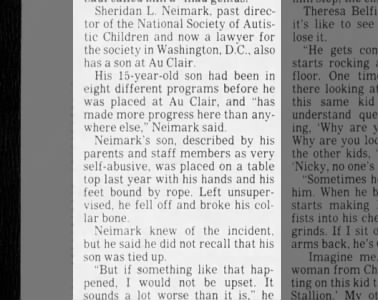
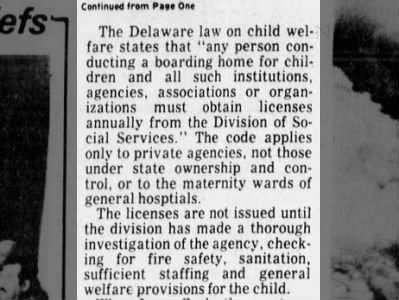
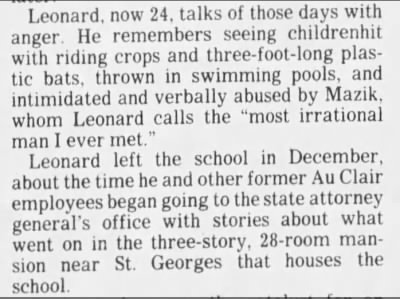 One such staff member was hired into the school in 1977. He witnessed children being hit with riding crops and a three-foot-long whiffle ball bat. Another staff member, hired in August 1976, on his second day, witnessed a teen who was tied with a rope around the waist and then dunked into a pool "that had not been cleaned, and it was filled with algae, dirty water, and dead insects."
One such staff member was hired into the school in 1977. He witnessed children being hit with riding crops and a three-foot-long whiffle ball bat. Another staff member, hired in August 1976, on his second day, witnessed a teen who was tied with a rope around the waist and then dunked into a pool "that had not been cleaned, and it was filled with algae, dirty water, and dead insects."




